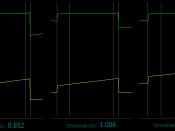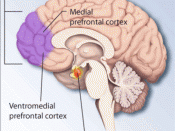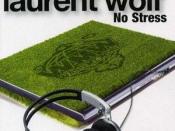"Forty-three percent of all adults suffer adverse health effects from stress; 75 to 90 percent of all physician office visits are for stress-related ailments and complaints; stress is linked to the six leading causes of death--heart disease, cancer, lung ailments, accidents, cirrhosis of the liver, and suicide." (Miller, 1993, p.12) "Stress plays havoc with our health, our productivity, our pocketbooks, and our lives, but it is necessary, even desirable." (Oxford, 1998, p.29)
During the eighties and into the nineties, work stress continued to rise in organizations across the U.S. The eighties saw employees stressing out from working in a rapidly growing economy. During the nineties, and continuing today, employees are stressed by their own job insecurities in the face of downsizing and restructuring of corporations.
Stress is a very broad topic ranging from research on the sources of stress, and the effects of stress, to ways of managing and reducing stress.
When people talk about stress they don't realize that there different types of stress.
Acute stress is the most common type of stress. "Acute stress comes from demands and pressures of the recent past and anticipated demands and pressures of the near future." (Hanson, 1985 p.17). Everyone experiences stress, however, each person responds to stress differently. Their response depends on how they react to stress emotionally, mentally, and physically. There are, however, common effects of stress for most people, both physically and mentally.
Some of the most common symptoms of stress are emotional distress, muscular problems, stomach problems, and over stimulation.
Emotional distress includes anger, irritability, and anxiety. Muscular problems such as tension headaches, upper and lower back pain, and jaw pain, are symptoms of stress. Muscular tension that leads to pulled muscles, and tendon and ligament problems, are also symptoms of stress. Other symptoms of stress are...



Good essay
This essay is from a high school student, I can't believe the author could write such a good structure and APA style article, amazing!
1 out of 1 people found this comment useful.